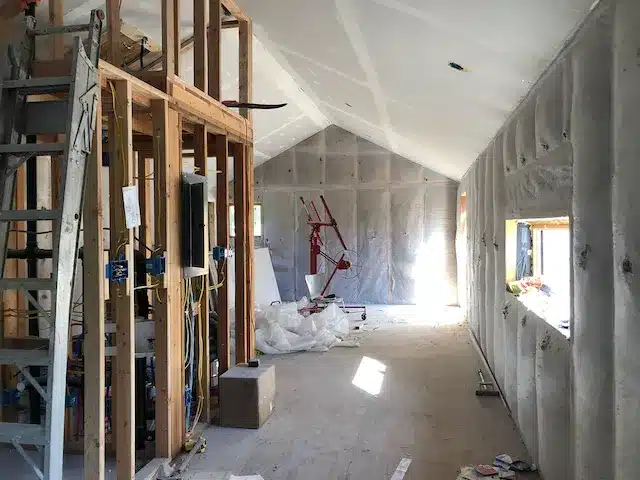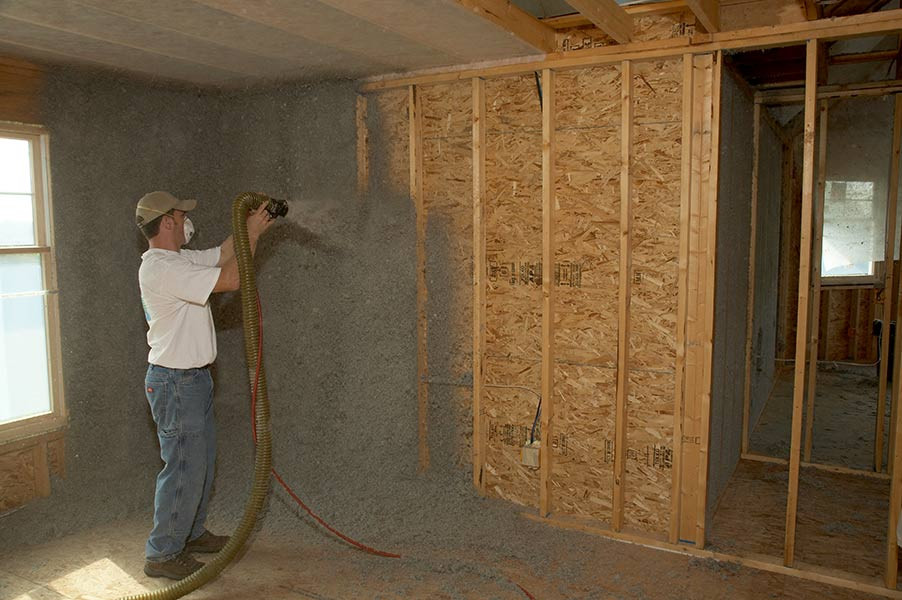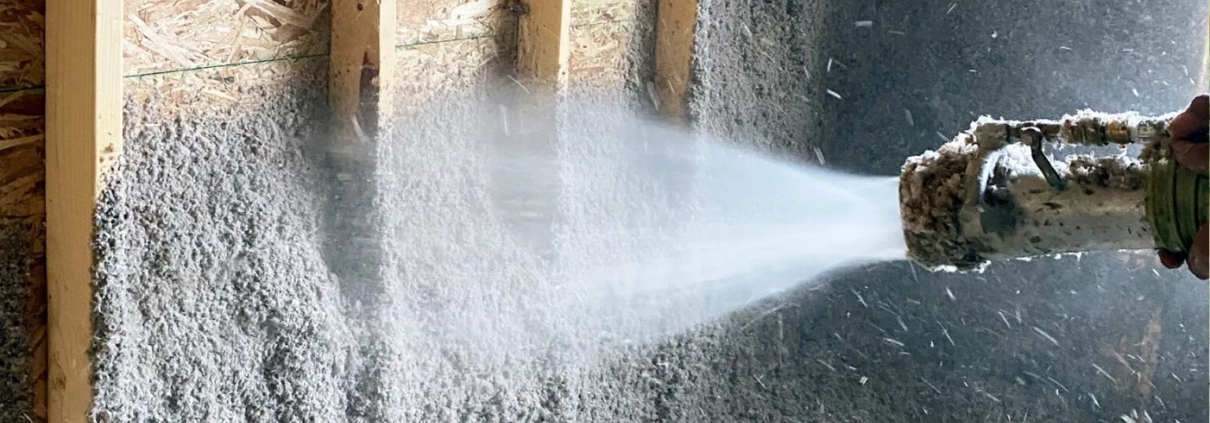Dense Pack Cellulose: A Cost-Effective Way to Stay Comfortable
Winter chills or summer heat can make any space feel unbearable, and no one wants their utility bills to spike just to feel cozy. Dense pack cellulose insulation offers an efficient way to keep indoor spaces comfortable without shelling out unnecessary money or dealing with drafts that sneak through walls and attics. For both residents and commercial property owners, understanding how this insulation works can save headaches—and money—over the long run.
Unlike traditional insulation that can leave gaps or compress over time, dense pack cellulose fills spaces completely. This creates a consistent thermal barrier, keeping heat in during the winter and out during the summer. The dense structure also dampens sound, which is an unexpected bonus for busy households or offices near noisy streets.
How Dense Pack Cellulose Works
Dense pack cellulose insulation is made from recycled paper products treated with fire retardants, compressed, and installed at high density in walls, attics, and ceilings. Its effectiveness comes from the combination of mass and tight packing, which minimizes air pockets that reduce insulation performance.
The Science Behind the Insulation
Dense pack cellulose slows down the transfer of heat through walls by trapping tiny air pockets inside the cellulose fibers. These air pockets act as a thermal buffer, keeping indoor temperatures steady. Unlike some foam or batt insulation, dense pack cellulose can conform to irregular cavities in older buildings, ensuring full coverage and eliminating gaps where drafts form.
Fun Fact
Dense pack cellulose can reduce sound transmission by up to 50% compared to bare walls, making it an excellent option for offices or apartments that need quiet spaces.

Benefits for Residents and Commercial Properties
Dense pack cellulose isn’t just about staying warm or cool. Its benefits extend to energy efficiency, indoor air quality, and property value.
Energy Savings
A well-insulated building can cut heating and cooling loads significantly. Dense pack cellulose maintains consistent wall and ceiling temperatures, reducing the need for constant HVAC use. This leads to a more predictable energy bill.
Moisture Management
Dense pack cellulose absorbs and releases moisture naturally, which helps prevent mold and mildew growth in walls. For older properties, this is particularly valuable because it stabilizes humidity without expensive dehumidification systems.
Fire Resistance and Safety
Despite being paper-based, dense pack cellulose is treated to resist ignition and slow the spread of flames. It offers a safety benefit that can be reassuring for both homeowners and commercial building managers.
Fun Fact
Using dense pack cellulose in an office environment can create a noticeably quieter work setting, improving concentration and reducing stress.
Comparison with Other Insulation Types
Choosing the right insulation depends on cost, performance, and specific building needs. The table below compares dense pack cellulose with fiberglass and spray foam insulation in key performance areas.
| Feature | Dense Pack Cellulose | Fiberglass Batts | Spray Foam |
|---|---|---|---|
| Thermal Performance | High | Moderate | Very High |
| Air Sealing | Excellent | Poor | Excellent |
| Sound Reduction | High | Low | Moderate |
| Eco-Friendliness | Very High | Moderate | Low |
| Moisture Handling | Good | Poor | Excellent |
| Retrofits (existing walls) | Easy | Difficult | Moderate |
Process of Installation
Dense pack cellulose is installed using specialized blowing equipment. Technicians inject the insulation into wall cavities or attics, compacting it to reach the desired density. Unlike some insulation types, it doesn’t require removal of existing drywall in most cases, making it a practical retrofit solution.

Choosing the Right Application
Dense pack cellulose isn’t one-size-fits-all. Identifying the right areas for installation is critical for maximizing comfort and efficiency.
Residential Use
Homes benefit from dense pack cellulose in attics, exterior walls, and sometimes basements. In older houses, it fills irregular wall cavities that batt insulation might leave exposed.
Commercial Properties
For commercial buildings, the insulation works well in office walls, shared walls between units, and even in ceiling panels for multi-story structures. The noise reduction and thermal stability benefits are especially noticeable in busy office environments or retail spaces.
Fun Fact
Dense pack cellulose weighs about 1/3 of traditional concrete block, yet it packs a punch in thermal efficiency.
Common Questions
How long does dense pack cellulose last?
Dense pack cellulose can remain effective for decades. Properly installed, it maintains its density and thermal performance without sagging or settling.
Is dense pack cellulose safe for indoor air quality?
Yes. Treated with non-toxic fire retardants, dense pack cellulose does not release harmful gases and can even help stabilize indoor humidity levels.
Can dense pack cellulose be added to existing walls?
Absolutely. Retrofit applications allow it to be blown into wall cavities without major demolition, making it a cost-effective upgrade for older properties.
Does dense pack cellulose require maintenance?
No ongoing maintenance is needed. Once installed, it maintains its performance without intervention, though occasional inspections for moisture intrusion are wise.
How does it compare to spray foam for energy savings?
Spray foam can offer slightly higher R-values per inch, but dense pack cellulose often matches overall performance when installed at recommended densities. It’s also more eco-friendly and easier to retrofit.
Conclusion
Dense pack cellulose is a versatile, cost-effective solution for keeping both homes and commercial spaces comfortable. Its ability to fill irregular cavities, reduce sound, manage moisture, and maintain thermal stability makes it an appealing choice for older and new buildings alike.
Investing in dense pack cellulose can lower energy costs, stabilize indoor environments, and improve overall comfort without extensive renovations or high-cost alternatives. Both residents and commercial property owners can enjoy the benefits of a more controlled climate and a quieter indoor setting.
Learn more about at: https://avinsulation.net/?utm_source=backlink
Reviewer: Charlotte King reviewed this article based on her 7 years of spray foam experience, contributing thoughtful advice about building customer relationships and improving local visibility.


Leave a Reply
Want to join the discussion?Feel free to contribute!